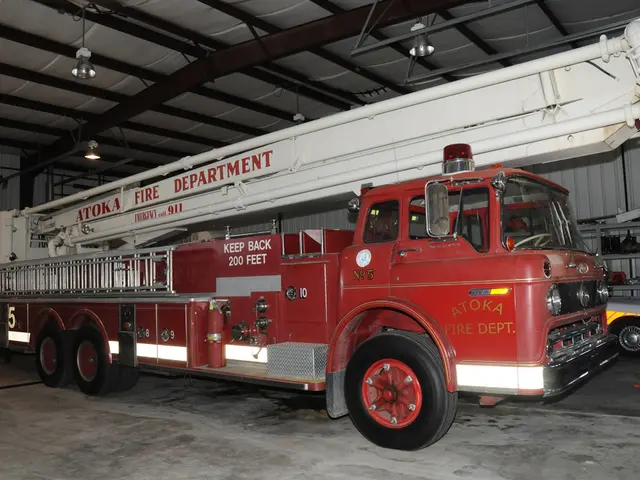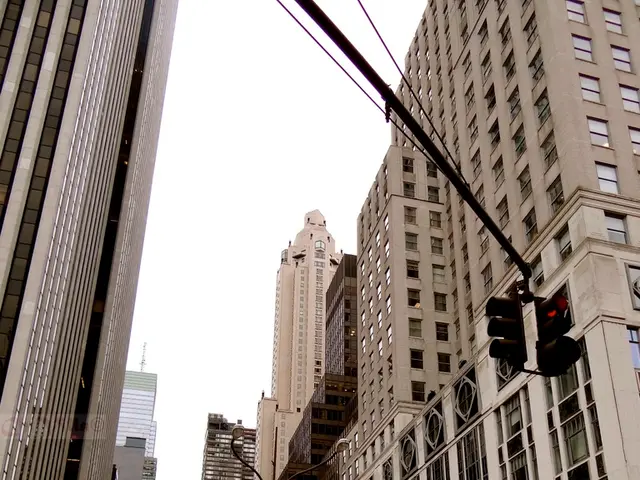Investigation concludes reasons behind fire and explosion at BASF in July 2024
In the industrial town of Ludwigshafen, Germany, on July 29, 2024, an explosion rocked BASF's South plant, sending a smoke cloud billowing into the sky. The incident, which occurred in the production facility for vitamins and flavorings, resulted in 18 people being lightly injured, including seven firefighters.
The explosion was caused by a corroded gas pipeline. An investigation, which took a significant amount of time, revealed that the corrosion might not have been detected during regular inspections. The rupture occurred from the inside due to salts and chlorides that formed during chemical processes.
Initially, the damage was estimated to be around two million euros. However, the total damage cost has since been covered by insurance. The plant for the production of vitamins and operating materials at BASF's South plant has resumed operation.
The Public Prosecutor's Office in Frankenthal has discontinued proceedings regarding the incident, citing no indications of any criminally relevant misconduct. Despite this, the incident serves as a reminder of the importance of safety measures in chemical plants.
Safety practices in such plants focus on comprehensive monitoring, maintenance, and regulatory compliance. Key practices include the use of cathodic protection systems, regular inspections and monitoring, advanced corrosion monitoring technologies, maintaining coating and lining integrity, risk-based inspections, staff training and emergency preparedness, and adherence to regulatory frameworks.
In the context of the BASF South plant case, the explosion from a corroded gas line underscores the importance of integrating regular corrosion surveillance, prompt repair and replacement of compromised pipeline sections, use of advanced monitoring technologies, detailed risk assessments, adherence to stringent regulatory standards, and continuous workforce training. These combined measures can prevent corrosion-related failures and mitigate severe accidents in chemical plants handling gas pipelines.
As the industry continues to evolve, it is crucial to reevaluate and enhance safety measures to prevent such incidents from recurring. The lessons learned from the BASF South plant explosion can serve as a catalyst for improved safety practices and regulations in chemical plants worldwide.
[1] Cathodic Protection for Pipeline Systems [2] Pipeline Corrosion: Understanding the Threat and Implementing Effective Prevention Strategies [3] Risk-Based Inspection for Pipelines [4] Advanced Corrosion Monitoring Technologies for Pipelines
- In light of the explosion at BASF's South plant, there is a renewed emphasis on the use of cathodic protection systems in the manufacturing industry to prevent corrosion-related failures and reduce the risk of future accidents.
- As the finance industry evaluates potential investments in the energy sector following the incident at BASF, understanding the importance of pipeline corrosion prevention and implementing effective strategies becomes essential for maintaining the safety and integrity of gas infrastructure.
- In response to a series of recent accidents in the general-news, such as the explosion at BASF's South plant, regulatory bodies are exploring the implementation of advanced corrosion monitoring technologies and risk-based inspection strategies to ensure the safety and longevity of gas pipelines in the industry.




